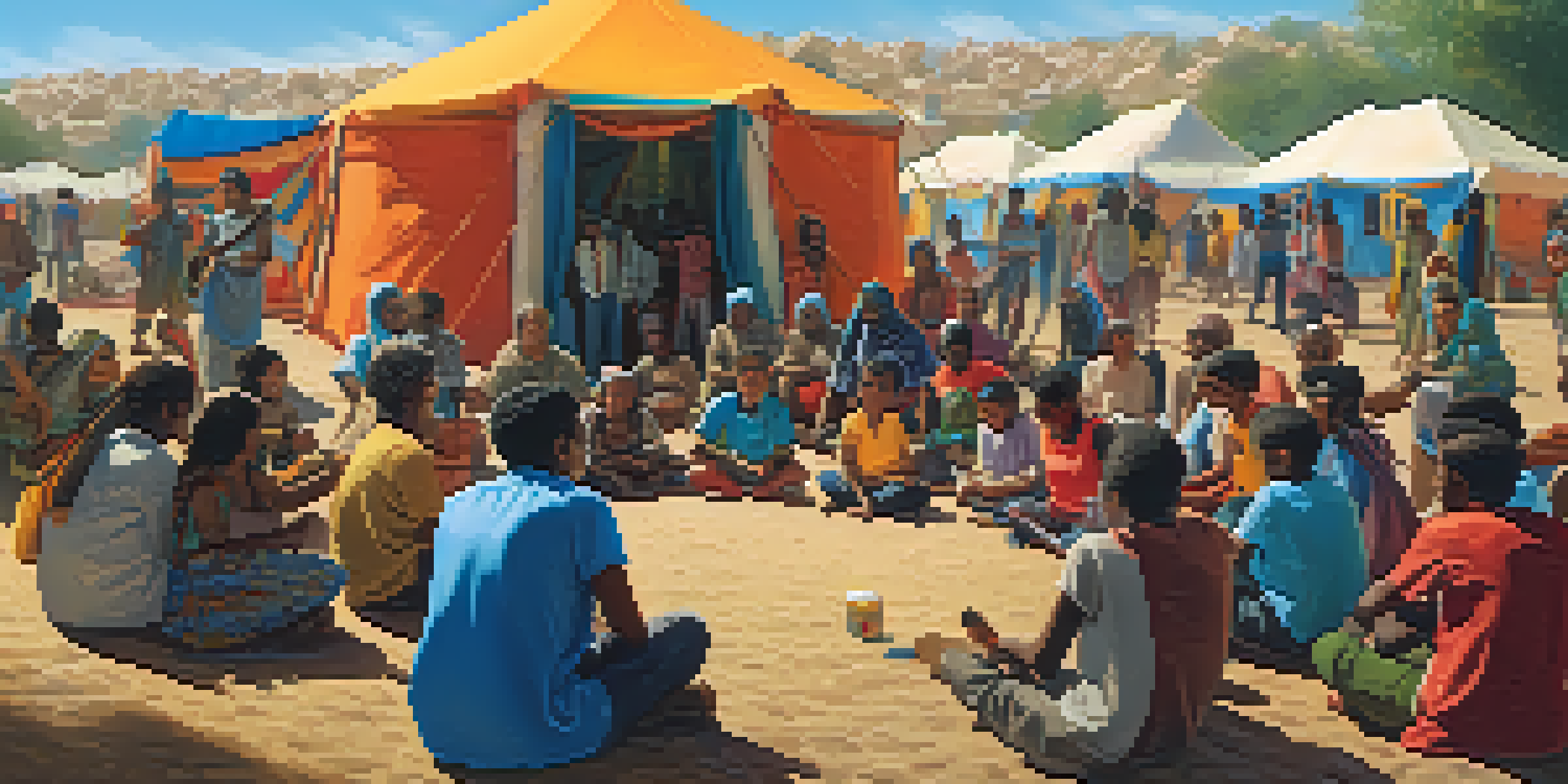Musical Interventions in Refugee Camps for Peacebuilding

Understanding the Role of Music in Refugee Camps
Music has long been a universal language, capable of conveying emotions and stories. In refugee camps, where individuals face immense challenges, music becomes a vital tool for expression and connection. It serves as a bridge, allowing people from diverse backgrounds to share their experiences and feelings in a safe environment.
The Psychological Benefits of Musical Interventions
Engaging in musical activities can significantly alleviate stress and trauma. For refugees who have experienced loss and displacement, music provides an outlet for healing and coping. Research shows that participating in group music-making can enhance mood, foster resilience, and build a sense of community among individuals who have endured similar hardships.
Music as a Healing Tool
Music provides a vital outlet for refugees to express emotions and cope with trauma.
Creating Community through Collaborative Music Projects
Collaborative music projects in refugee camps can unite individuals and promote social cohesion. By coming together to create music, participants foster connections and develop mutual understanding. These initiatives not only empower individuals but also cultivate a sense of belonging, essential for rebuilding lives in challenging environments.
Case Studies: Successful Musical Programs in Camps
Various organizations have successfully implemented musical interventions in refugee camps. For instance, the 'Music as a Tool for Peace' program in Jordan has brought together Syrian and Iraqi refugees through music workshops. Such initiatives not only provide creative outlets but also encourage dialogue among participants, fostering peacebuilding efforts.
Building Community Through Music
Collaborative music projects foster connections and a sense of belonging among individuals in refugee camps.
Music Education: A Gateway to Empowerment
Providing music education in refugee camps can empower individuals and enhance their skills. Learning to play an instrument or participate in vocal ensembles can lead to newfound confidence and self-expression. This educational aspect not only enriches lives but also offers opportunities for future pathways, whether in music or other fields.
Challenges Faced in Implementing Music Programs
While the benefits of music interventions are clear, implementing these programs in refugee camps comes with challenges. Limited resources, lack of trained facilitators, and cultural differences can hinder the success of musical initiatives. Addressing these obstacles requires collaboration with local organizations and communities to ensure that programs are culturally relevant and accessible.
Empowerment Through Music Education
Learning music can enhance confidence and open pathways for personal and professional growth for refugees.
The Role of Technology in Musical Interventions
In today's digital age, technology can enhance musical interventions in refugee camps. Online platforms and apps can provide access to music education and resources, allowing individuals to learn and create from anywhere. Such tools not only expand reach but also foster connections with global musical communities, further enriching participants' experiences.
Looking Forward: The Future of Music in Peacebuilding
As we look to the future, the potential for musical interventions in refugee camps remains promising. By integrating music into broader peacebuilding strategies, we can create sustainable change in communities affected by conflict. Ultimately, music has the power to heal wounds, build bridges, and cultivate a more peaceful world, one note at a time.